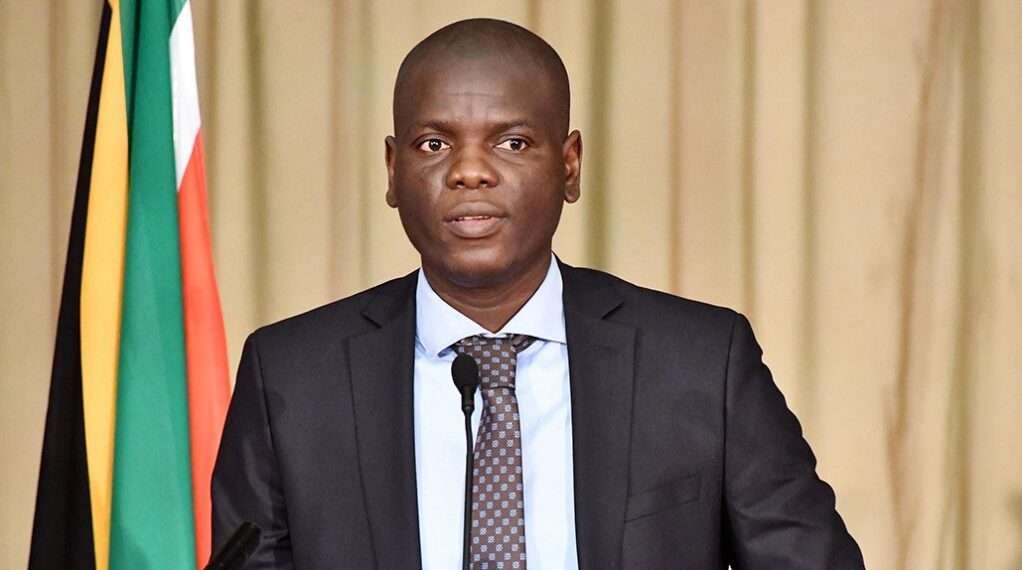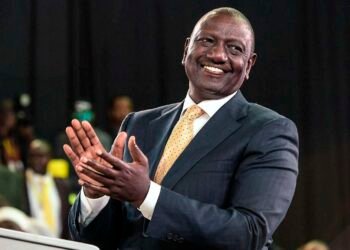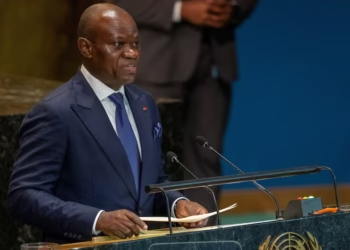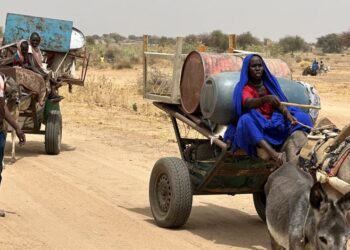South Africa has appointed a new top diplomat, Ronald Lamola who has pledged to continue to advocate for holding “Israel and individuals responsible for genocide accountable.”
Late last year, South Africa’s foreign ministry took a bold step by bringing a case against Israel to the International Court of Justice (ICJ), accusing the nation of committing genocide in Gaza.
Naledi Pandor, then the minister of international relations and cooperation, led the charge, emphasizing the urgency of addressing the widespread killing of Palestinian civilians.
However, following a landmark national election in May, which saw a shift in the country’s governance, the nod fell on Ronald Lamola who pledged continuity in South Africa’s foreign policy.
“We should not be bullied by anyone. We must be able to mediate in conflicts and advocate for human rights without external pressure,” Lamola, the newly sworn-in foreign minister, asserted.
At 40, Lamola steps into his role during a crucial period, balancing the nation’s efforts to hold Israel accountable and addressing conflicts across Africa.
The recent election saw the African National Congress (ANC) losing its parliamentary majority for the first time in 30 years, resulting in a coalition government.
Lamola, a senior ANC leader and former justice minister, now faces the challenge of maintaining a unified foreign policy amidst diverse coalition partners.
The coalition includes the center-right Democratic Alliance, which remains neutral on the Gaza conflict, and the right-wing Patriotic Alliance, which supports Israel.
Despite these differing ideologies, Lamola affirmed that South Africa’s principle of non-alignment remains firm.

The coalition government’s agreement emphasizes a foreign policy rooted in human rights, constitutionalism, national interest, and multilateralism.
Sanusha Naidu, a foreign policy analyst, believes Lamola will maintain South Africa’s assertive stance on Palestine.
“It’s all part of the broader framework of South Africa’s foreign policy as articulated by the ANC and the president,” Naidu said.
She noted that while Lamola might bring a different style to global forums, the substance of South Africa’s foreign policy will remain consistent.
Political and Economic Diplomacy In Africa Lamola’s Priority
Furthermore, Ronald Lamola’s immediate priority is addressing conflicts within Africa. He has committed to the African Union’s (AU) initiative to “silence the guns” and achieve a conflict-free continent by 2030.
This comes as the International Rescue Committee (IRC) warns of rising conflicts, coups, and poverty across Africa, with the number of armed groups doubling in the past decade.
Lamola emphasized the need for mediation in Sudan, where over 11 million people are internally displaced.
“Sudan is a major concern for the AU and was a key issue in my discussions with counterparts from Nigeria and Egypt. Bringing all warring parties together for dialogue is essential for a lasting solution.”
Ronald Lamola
Elizabeth Sidiropoulos, head of the South African Institute of International Affairs, highlighted the challenge of effectively utilizing limited resources in defense and diplomatic mediation for crucial conflicts in Africa.
“The key challenge for the minister will be effectively utilizing our limited resources in both defense and diplomatic mediation for crucial conflicts on our continent,” she said.
Economic diplomacy also remains a priority for Lamola, who advocates for favorable loan conditions for African countries.
This stance comes amid mass protests in Kenya against high-interest loans from the International Monetary Fund (IMF) and other Western lenders.
Lamola plans to leverage South Africa’s global position, including its upcoming presidency of the G20, to secure favorable financing for African development projects.
“We advocate for financing conditions that support development without impairing sovereignty,” he explained.
Also, Lamola stressed the importance of addressing climate change without compromising African development. “Our transition must be just and inclusive,” he said.
As South Africa navigates its new political terrain, Lamola’s leadership will be pivotal in shaping the nation’s foreign policy and addressing pressing issues both within Africa and on the global stage.
READ ALSO: Economists Urge Immediate Action as Ghana’s Debt Reaches Critical Levels





















